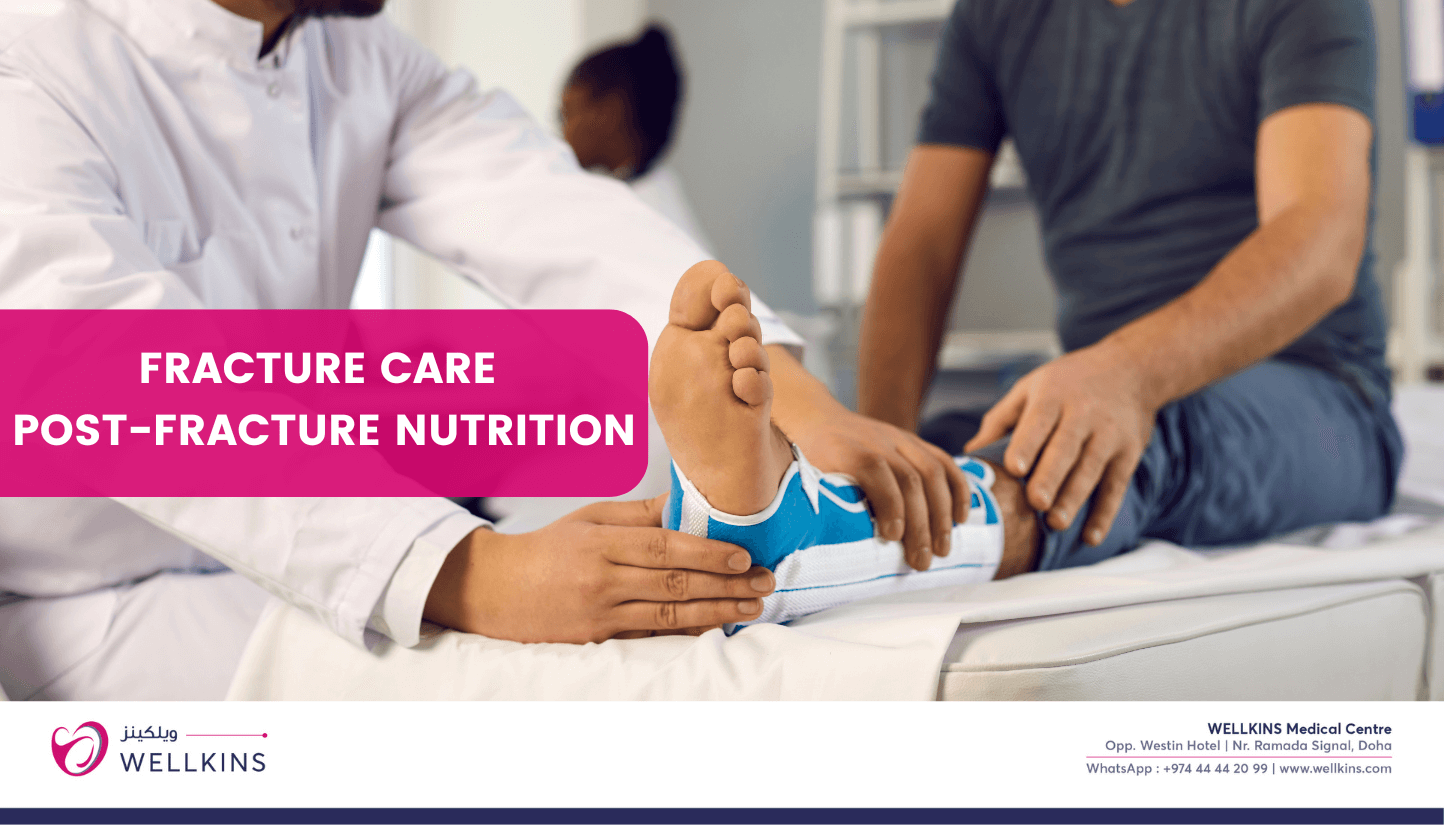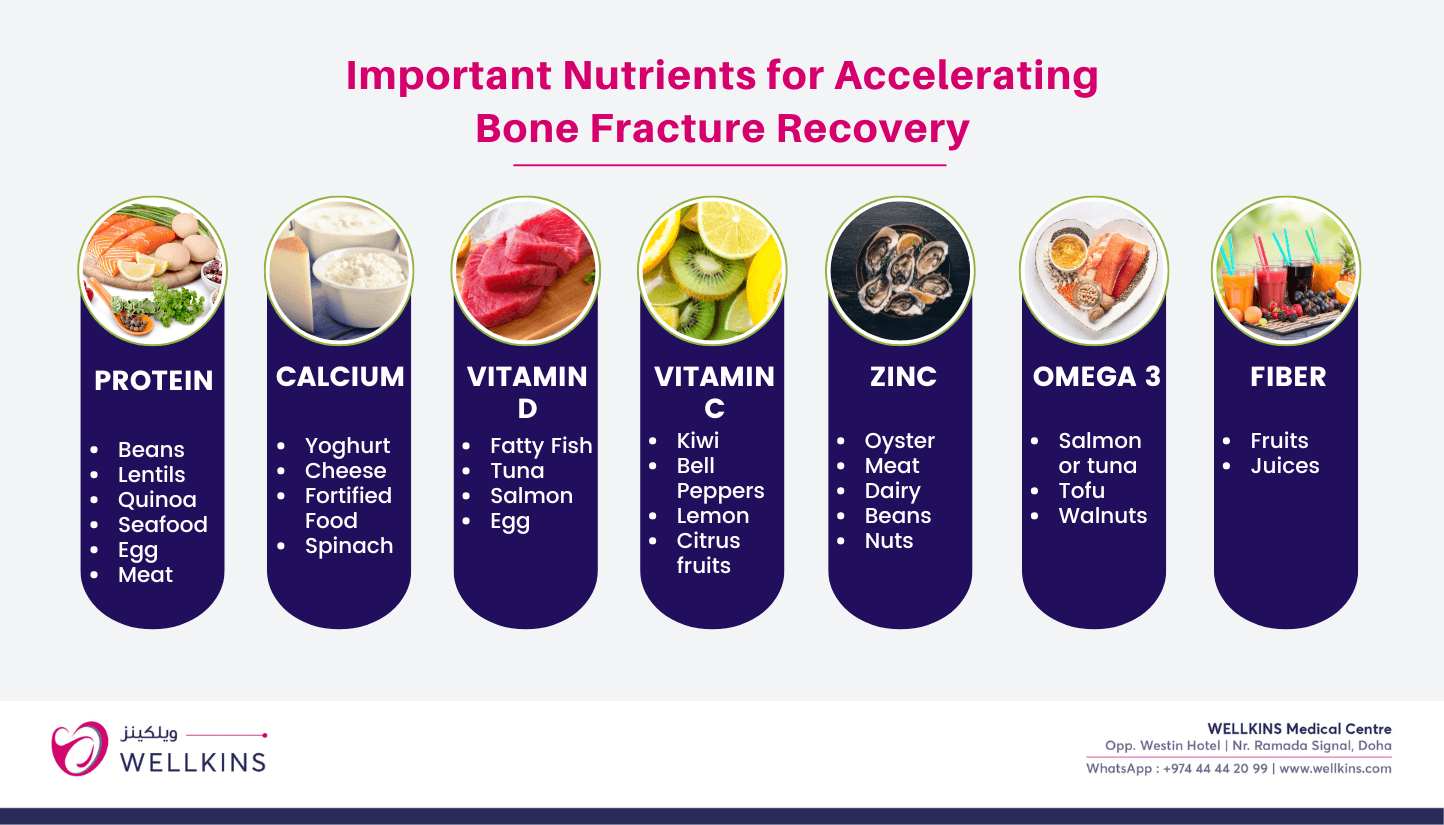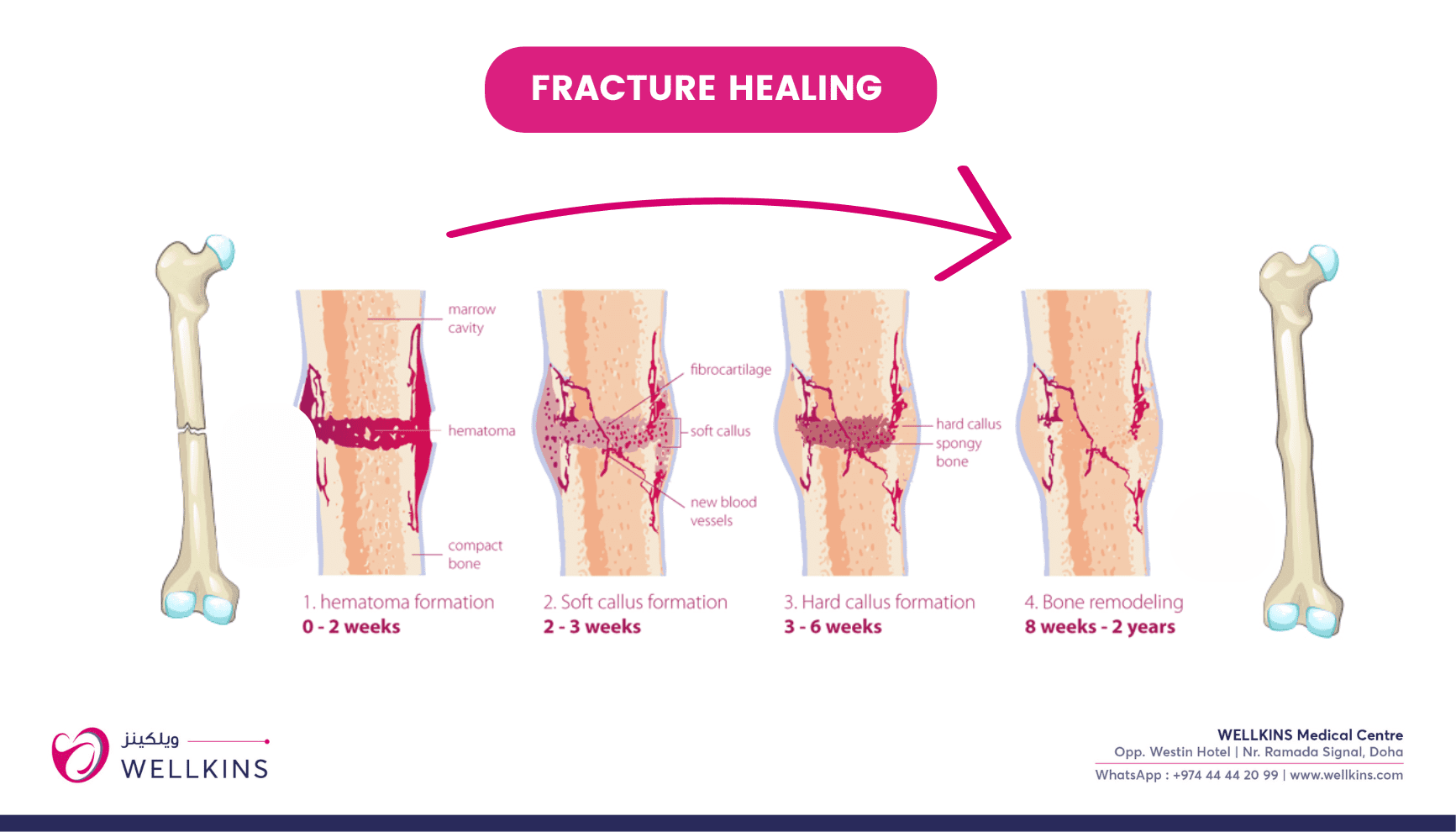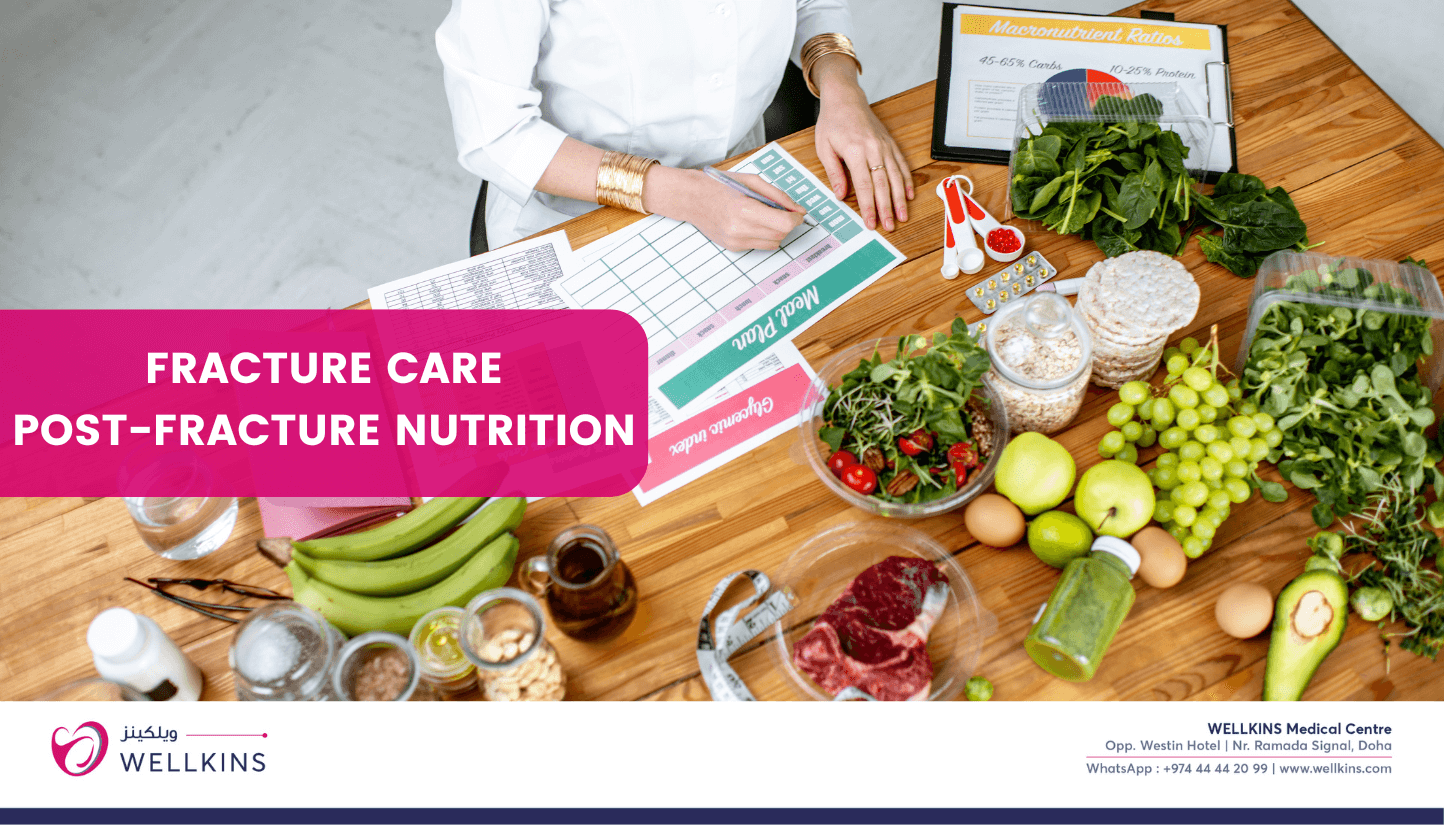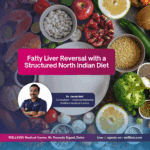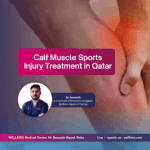Author: Dr.Reneesh (Consultant Orthopedic Surgeon – WELLKINS Medical Centre)
A bone fracture refers to a break or crack in a bone, typically caused by trauma, such as falls, accidents, or sports injuries. Fractures can range from minor cracks (hairline fractures) to complete breaks that result in the bone being displaced. Regardless of the type, proper care and nutrition play a crucial role in the healing process.
Consuming a diet rich in calcium, vitamin D, protein, and antioxidants is essential for post-fracture recovery. These nutrients support bone healing, reduce inflammation, and boost the immune system, promoting optimal recovery and preventing complications.
Proper fracture care is essential for preventing pain and ensuring optimal healing.
The Stages of Fracture Healing
Bone healing occurs in several distinct stages:
1. Inflammatory Stage (0-2 weeks):
* After the fracture, the body initiates an inflammatory response. Blood clots form around the site, and immune cells clean up dead tissue.
2. Repair Stage (2-6 weeks):
* New bone (callus) begins to form. Specialized cells known as osteoblasts start creating collagen and mineral deposits, bridging the fracture.
3. Remodeling Stage (6 weeks – months/years):
* The newly formed bone slowly remodels itself to regain strength and shape. This process can take months to years depending on the severity of the fracture.
Nutritional Needs for Optimal Bone Healing
Adequate nutrition is critical for a successful and rapid recovery from a bone fracture. Several nutrients are key to bone repair and regeneration:
1. Protein
Protein forms the building blocks of bones, muscles, and tissues. After a fracture, the body’s demand for protein increases to promote healing. Include:
* Lean meats (chicken, turkey)
* Eggs
* Legumes (lentils, beans)
* Dairy products (milk, yogurt)
2. Calcium
Calcium is a primary mineral in bone formation. It strengthens the bone structure and is essential during the callus formation stage.
* Dairy (milk, cheese)
* Leafy greens (spinach, kale)
* Almonds
* Fortified plant-based milk (almond, soy)
3. Vitamin D
Vitamin D helps the body absorb calcium effectively. Without sufficient vitamin D, calcium absorption is limited, hindering bone healing.
* Sun exposure (10-15 minutes daily)
* Fatty fish (salmon, tuna)
* Fortified cereals and juices
4. Vitamin C
Vitamin C plays a critical role in collagen synthesis, which is essential for the repair stage of fracture healing. It also supports the immune system.
* Citrus fruits (oranges, lemons)
* Berries (strawberries, blueberries)
* Bell peppers
5. Magnesium
Magnesium aids in the regulation of calcium and vitamin D levels. It also supports bone mineral density and overall bone strength.
* Nuts (almonds, cashews)
* Whole grains (brown rice, oats)
* Dark leafy greens
6. Zinc
Zinc helps in tissue regeneration and promotes immune function, which is critical during the inflammatory and repair stages.
* Shellfish (oysters)
* Nuts and seeds (pumpkin seeds, flaxseeds)
* Whole grains
7. Omega-3 Fatty Acids
Omega-3s reduce inflammation at the fracture site and support the body’s repair process.
* Fatty fish (salmon, mackerel)
* Chia seeds, flaxseeds
* Walnuts
Hydration during post fracture
Staying hydrated is equally important, as dehydration can slow the healing process. Water helps transport essential nutrients to the fracture site and ensures optimal cell function. Aim to drink at least 8-10 glasses of water per day.
What to Avoid During Recovery
While certain nutrients are beneficial, there are also foods and habits that can hinder recovery:
* Excessive alcohol: Can interfere with bone healing.
* Smoking: Slows down circulation and impairs healing.
* Sugary or processed foods: Provide little to no nutritional value and can delay recovery.
Bone healing is a complex process that requires not just medical care but also proper nutrition. By incorporating a balanced diet rich in proteins, vitamins, and minerals, and avoiding substances that can hinder recovery, you can support faster and healthier fracture healing.


